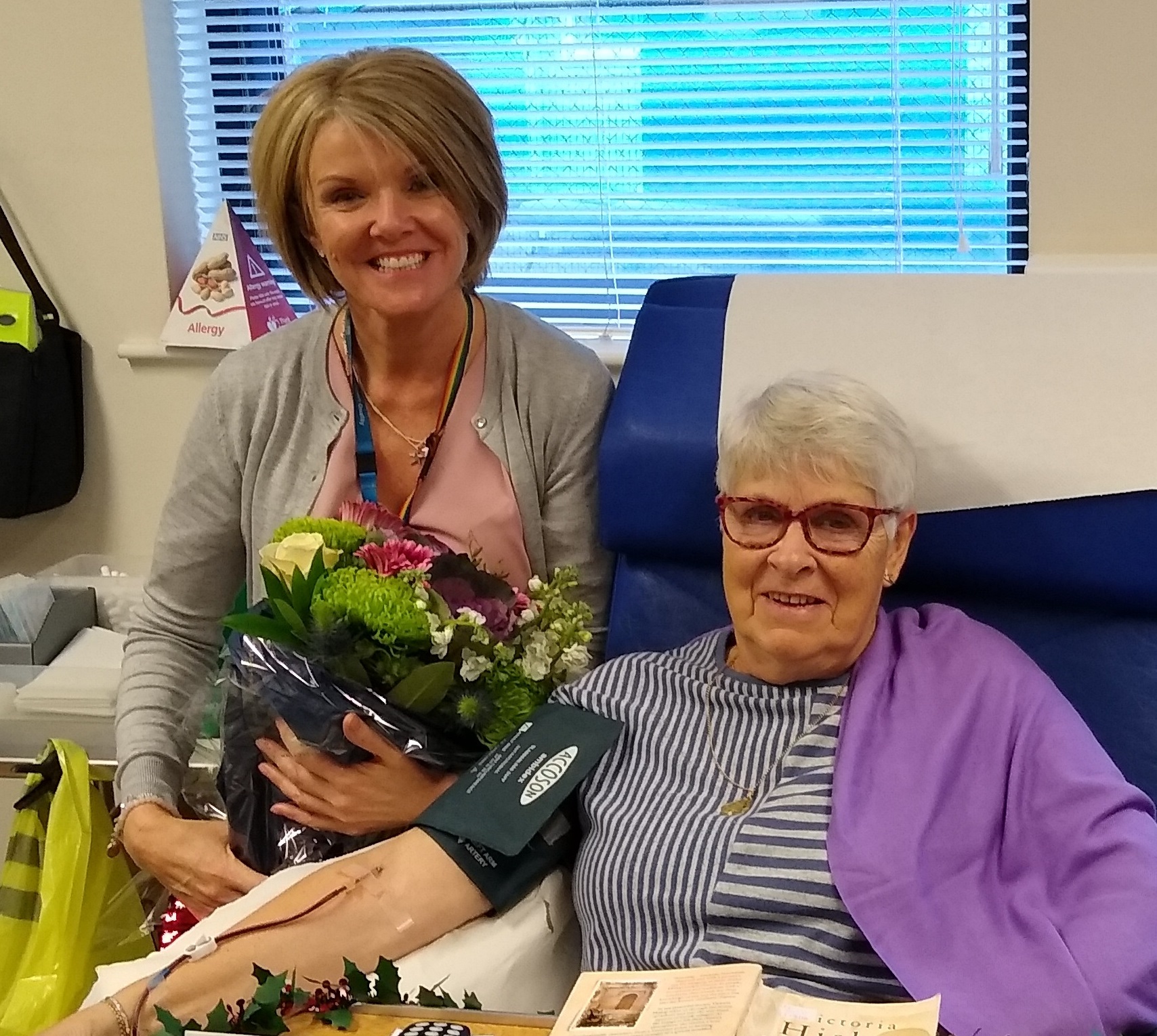Book an appointment online
Existing blood donors can book appointments online
Kathleen Hodson's latest platelet donation brought her overall blood and platelet donation credits to an astounding 1500!
 Kathleen Hodson (76) of St Austell, Cornwall, travelled to Plymouth Donor Centre on Thursday 12 December for her regular platelet donation appointment. This was no ordinary visit though, as it brought her overall blood and platelet donation credits to an astounding 1500!
Kathleen Hodson (76) of St Austell, Cornwall, travelled to Plymouth Donor Centre on Thursday 12 December for her regular platelet donation appointment. This was no ordinary visit though, as it brought her overall blood and platelet donation credits to an astounding 1500!
Kathleen started donating blood 54 years ago in 1965 and she has amassed an incredible total number of credits by making regular blood donations, before switching to even more frequent platelet donations [1] [2].
It’s not possible to know for sure how many people Kathleen has helped but because each blood and platelet donation can help several people, more than 5,000 people could have received her blood and platelets.
Platelets are tiny cells in our blood which help it to clot and prevent bleeding. 69% of all platelets issued to hospitals by NHS Blood and Transplant go to help people with cancer.
 Asked why she became a platelet donor, Kathleen said, “I was donating blood on holiday in Jersey and I saw someone donating platelets – I wanted to find out if I was able to give my platelets instead. It’s my way to help people in need and I am hoping to encourage others to do the same.
Asked why she became a platelet donor, Kathleen said, “I was donating blood on holiday in Jersey and I saw someone donating platelets – I wanted to find out if I was able to give my platelets instead. It’s my way to help people in need and I am hoping to encourage others to do the same.
“I donate platelets once a fortnight and my son has signed up to become a blood donor, as he was not suitable for platelet donation [3]. I want people to know that the donation process is a pleasant experience and by becoming a donor, you can really help others.
“I really enjoy getting a text message to let me know which hospital my platelets have gone to. My son and I are having a competition to see which one of our donations travels the furthest in the country!
“My husband is wonderful as he drives me from St Austell so I can attend my donation appointments. I love to know that by donating I am helping to improve the lives of so many others and will continue for as long as I am able.”
 Jane Murphy, Plymouth Donor Centre Manager, said, “Kathleen is an amazing human being who has selflessly given so much of her time to help others. Her commitment to keeping her regular appointments and travelling from St Austell is second to none. Thank you Kathleen!
Jane Murphy, Plymouth Donor Centre Manager, said, “Kathleen is an amazing human being who has selflessly given so much of her time to help others. Her commitment to keeping her regular appointments and travelling from St Austell is second to none. Thank you Kathleen!
“Her noble generosity is greatly appreciated by the team in Plymouth and everyone at NHS Blood and Transplant, but most importantly the people who rely on donors like Kathleen for their treatment.
“In the past there were more male platelet donors than female, but due to a change in testing availability our number of female donors are rising.
“There is a need for more male and female A negative platelet donors, as anyone can receive A negative platelets [4], so please consider becoming a donor if you can.”
For information about platelet donation visit the platelet donation website, or ask at your next donation session.
Images